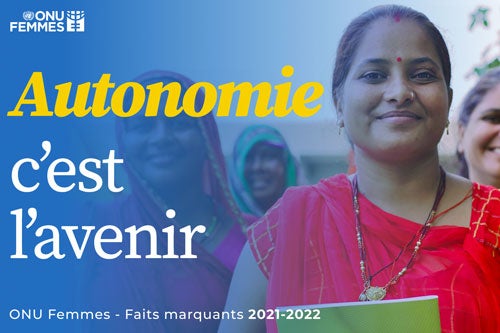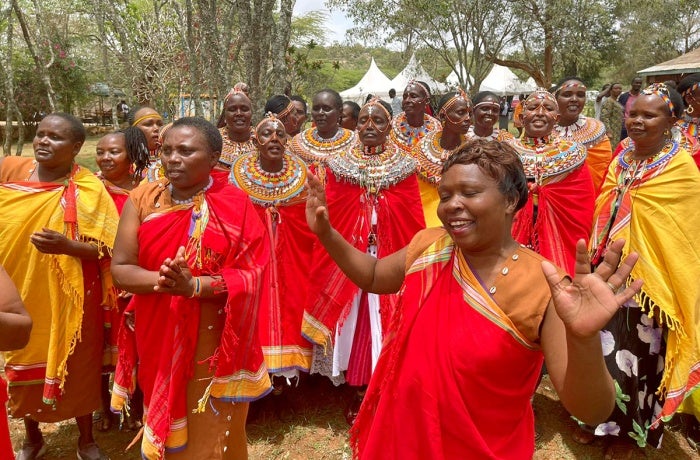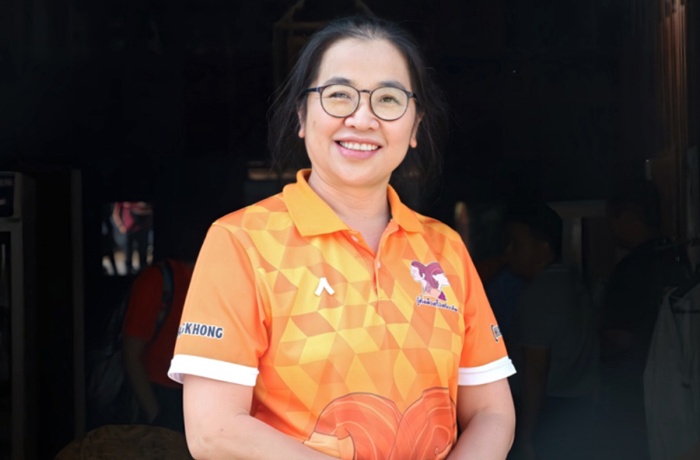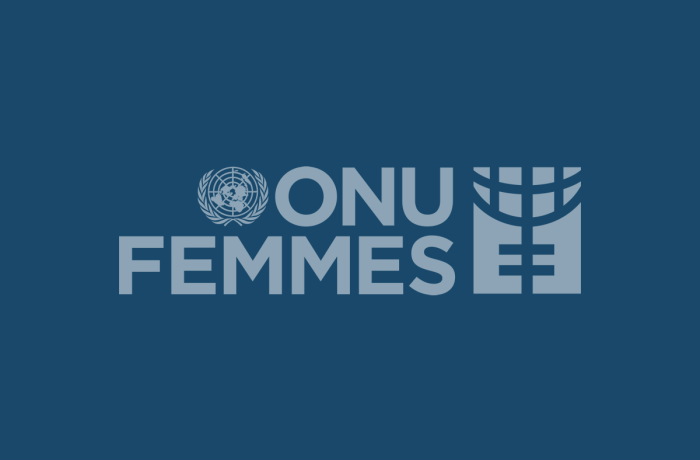Déclaration de Sima Bahous, Secrétaire générale adjointe des Nations Unies et Directrice exécutive d’ONU Femmes, à l’occasion de la Journée internationale pour l’élimination de la violence à l’égard des femmes (25 novembre 2021)
C’est aujourd’hui la Journée internationale pour l’élimination de la violence à l’égard des femmes. Ici, à l’ONU, et partout dans le monde, nous célébrons celles et ceux qui œuvrent pour protéger les femmes et les filles et pour défendre leurs droits fondamentaux. Et nous souhaitons la bienvenue à de nouveaux partenaires, gouvernements, organisations, institutions, groupes communautaires, personnes de partout, pour qu’ils se joignent à nous, fassent entendre leur voix et travaillent ensemble pour transformer la vie, non seulement pendant les 16 Jours d’activisme, mais également au quotidien.
Violence against women is a global crisis. In all of our own neighbourhoods, there are women and girls living in danger. Around the world, conflict, climate-related natural disasters, food insecurity and human rights violations are exacerbating violence against women. More than 70 per cent of women have experienced gender-based violence in some crisis settings. And in countries, both rich and poor, gender prejudice has fuelled acts of violence toward women and girls.
Violence against women often goes unreported, silenced by stigma, shame, fear of the perpetrators and fear of a justice system that does not work for women. The COVID-19 pandemic, with all its isolation and distancing, has enabled unseen violence: a second, shadow pandemic of violence against women and girls, where they often found themselves in lockdown with their abusers. In all corners of the world, helplines for violence against women saw an increase in reports.
The human rights of women — including the right to security, dignity, equality and justice — are core principles of international law. And we know that the leadership and safety of women, in all their diversity, plays a vital role in economic progress, community welfare, children's health and education, and more. All human life benefits when women's human rights are upheld, and we all suffer when those rights are abused.
But there is hope. In recent years, much has been much achieved to prevent and reduce violence against women and girls. The challenge now is to expand global efforts and make a difference in more lives. We must ensure that essential services are available and accessible to women of all ages. We need to support environments, online and off, in which women can participate safely in decision-making.
New opportunities are opening. Last summer, as part of a USD 40 billion commitment to the women and girls of the world, the Generation Equality Forum launched the Action Coalition on Gender-based Violence. The Coalition brings together a wide array of women's groups and others: youth, civil society, faith-based institutions, philanthropy, private sector, international organizations and UN Member States. There will be concrete financial and policy commitments, and scaled-up initiatives in critical areas: survivor support services, legal frameworks and more resources for grass-roots organizations.
Today, the International Day for the Elimination of Violence also opens some exciting hopes. It begins the annual "16 Days of Activism against Gender-Based Violence," a series of events aimed at creating real change. For 2021, the theme is, "Orange the World: End Violence Against Women Now!". "Orange" symbolizes a brighter future, free of violence. I welcome and urge you to participate.
Women's groups and concerned people everywhere have been vital to the progress that has been made. Going forward, together, we can make life better and brighter for many more girls and women across the world.








